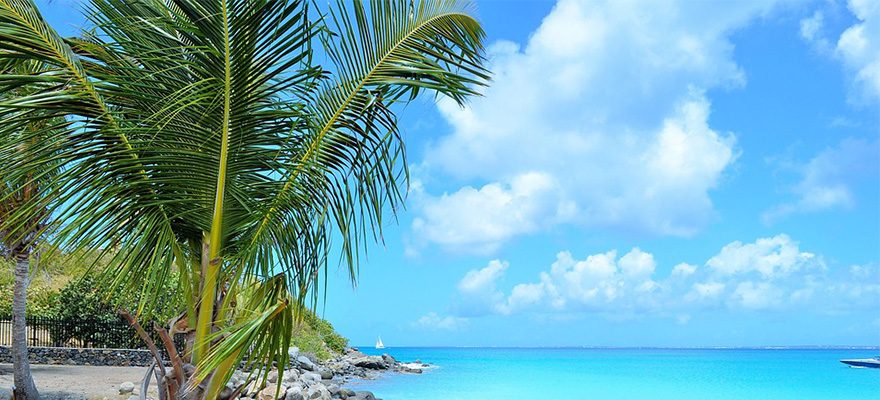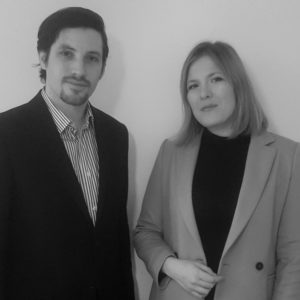

Sébastien Lachaussée & Elisa Martin-Winkel
Subsidies for film production in the french overseas territories
Within the financing system, regional aid for audiovisual and cinematographic production has an important part and represents an investment of more than € 140 million in 2017. Within this framework, overseas departments and territories are not to be neglected and offer a plurality of aids to attract shootings in territories distant from the homeland.
We can immediately highlight the existence of a selective support system for cinematographic works of interest to overseas cultures (Guadeloupe, Guyana, Martinique, Réunion and Saint-Pierre and Miquelon) implemented in the early 2000s. This support is open to short or full-length cinematographic works of cultural interest for Guadeloupe, Guyana, Martinique, Reunion, Mayotte and Saint-Pierre-et-Miquelon and that contribute to a better knowledge of these overseas territorial collectivities and their valorisation with a large public. It is understood taht only cinematographic work are eligible and works intended for a first television broadcast are exclude. Such support must be requested before shooting by a production company established in France.
The subsidy may be combined with other selective aids granted by the CNC, understood such aids do not exceed 50% of the final cost (70% for short films), subject to a possibe derogation.
Among the supported projects we can evoke « Pourquoi les garçons ne rappellent pas toujours » of Maharaki, produced by Aldabra Films granted with 75 000 € or « Ni dieu ni maitre » of Josephine Flasseur, produced by White Start and « Zepon » orf Gilles Elie-dit-Cosaque produced by Promenade Films both granted € 150,000.Short films are not left behind with an average support of € 29,000 per film over the 2017/2018 period.
At the regional scale, various aids are available depending on the overseas regions and we will offer an overview hereafter.
Réunion
Reunion is particularly active and the Agence Film Réunion offers a wide variety of aids among which aid for the screenplay, writing residency, development aid, aid for the production of pilots, aid for the production of short films, aid for the production of full lenght picture … and even aid dedicated to multimedia productions, always in the context where projects highlight the island of Reunion and the Indian Ocean.
Development and production aids are intended for producers and open to a typology of various projects: TV movies or television series, series and full-lenght cinematographic pictures (fiction, animation or documentaries)…
Development aid amounts to 40% of eligible development expenditure (rewriting, tracking, interviews, documentation, teaser shooting etc.), production aid amounts to 40% of eligible expenditure for projects at local level. 45% for national and international projects with ceilings depending to the typology of the project (€ 100,000 for a 52 ‘, € 150,000 for a 90’, € 300,000 for a feature film fiction or animation).
The aid for the production of short films is established at 50% of local expenses excluding taxes with a minimum of € 15,000 and a maximum of € 30,000.
Guadeloupe
In Guadeloupe, the regional support fund for audiovisual and cinematographic works is an aid scheme set up to encourage activity in the sector, particularly by promoting the use of the territory’s resources in personnel.
The supported projects are selected taking into account in particular the interest of the project for Guadeloupe: to highlight the territory of Guadeloupe in its historical, geographical, social and cultural diversity or to allow Guadeloupian authors to produced their projects etc. as well as the location of all or part of the filming of the work in Guadeloupe and the involvement of local resources in the project.
The production aids does not exceed 50% of the eligible costs, with notably the following ceilings: € 300,000 for a fiction or animation feature film, € 200,000 for a documentary feature film or a TV unitary fiction , € 30,000 for short films.
Spendings in the territory must represent at least 100% of the total amount of the production aid granted and at least 160% for specific projects such as feature films or animation films or telefilms.
Martinique
The Territorial Community of Martinique also supports audiovisual and cinematographic creation, whether it be writing, developing or producing projects.
Development aid can reach 100% of the eligible costs, according to the figures and convention established with a ceiling of 15 000 € for short films, 40 000 € for feature films or audiovisual series.
With regard to production aid whatever the type of projects (short film, feature film, documentary or creation, new media), the aid intensity rate may not exceed 50% of the eligible costs with a ceiling ranging from € 30,000 for a short film to € 150,000 for a feature film, and € 120,000 for telefilms over 52 min or TV series.
It should be noted that if the director or producer of the project is not domiciled in Martinique, 160% of the amount of aid granted to the production must be spent in Martinique.
French Guyana
French Guyana also has a support fund for cinematographic and audiovisual creation to stimulate local production, favorise the emergence of new talents and support the local professionals in the various stages of creation of their works and delivers aid pertaining to writing, development and production.
Development aid is allocated to a production company for the pre-production work of audiovisual and cinematographic projects and has the following ceilings: € 10,000 for a short film, € 20,000 for a feature film; € 15,000 for a telefilm with a duration of 52 ‘ or more.
As regards toproduction aid, it is allocated to a production company for pre-production work and can reach € 30,000 for a short film, € 195,000 for a feature film, € 80,000 for telefilm with a duration of 90′ or more.
Here again a location in Guyana of the expenses is imposed and in particular 100% of the amount of the aid to the documentary production, 160% of the amount of the aid to the production of fiction.
Among the projects supported recently it is possible to evoke the television series « Guyane » produced by Canal +, but also the short film « Mirelande » by Philippe Passon and the documentary series « Oyaroni » produced by Tic Tac Production.
As can be seen, the regional funds operate in a similar way, but the rules and conditions of each aid requested must be consulted in detail.
It is important to remember here that in the framework of regional aid, a convention setting the conditions of use and payment of the subsidy is established, signed by the president of the regional council and the beneficiary producer. The beneficiaries of the aid, all categories combined, undertake to respect different obligations, in particular as regards the monitoring of the project, the deadlines for starting the production and deliver the work, the location of expenditures, etc. and the repayment of the aid may generally be required in the event of a default by the recipient producer.
In this context, it is interesting for a producer to be accompanied by a specialized lawyer to organize a contractual framework for the project consistent with the requirements of the funds involved.
SHARE THIS ARTICLE
CONTACT
OUR OFFICES
INFORMATION
sl@avocatl.com
PHONE
+33.1.83.92.11.67
Address
121, boulevard de Sebastopol
75002 Paris
5th floor / Staircase A
Follow us :
Newsletter
Please enter your e-mail :
